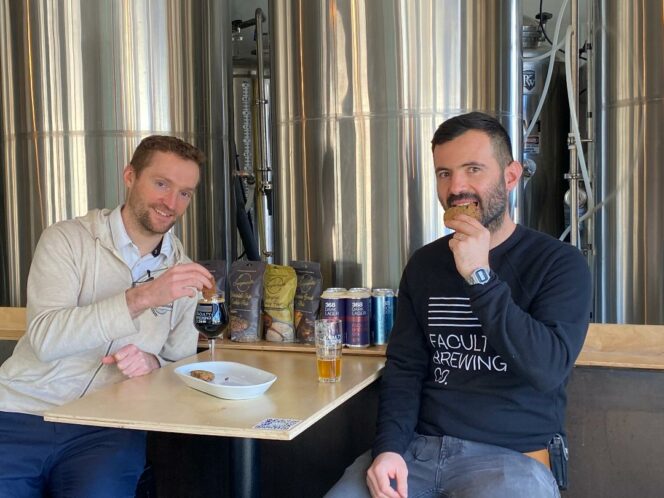
Marc Wandler, co-owner of Susgrainable (left) with Mauricio Lozano, owner/operator of Faculty Brewing Co. (right); sourced from Susgrainable
Vancouver’s craft brewery scene has been exploding over the last decade. This growth has been an incredibly exciting development for beer enthusiasts. However, beer production consumes considerable resources, such as water, and leads to waste, primarily in the form of spent grain. In fact, it’s estimated that breweries in Canada produce over 400,000 tonnes of spent grain per year. That’s a huge amount of waste potentially going to the landfill.
Breweries in the city are very aware of the issue, and engaging in a variety of innovative solutions to reuse or upcycle spent grain. One Vancouver company has devoted itself to transforming spent grain into barley flour. Susgrainable sells the upcycled flour, as well as uses it for other products, such as baked goods and a variety of mixes (e.g., chocolate chip cookie, banana bread, and pancake and waffle mix). Susgrainable started as a school project in 2018 when co-founder Marc Wandler was doing his MBA at the University of British Columbia. It then rapidly grew from there.

Photo sourced from Susgrainable
Wandler, who has a background in kinesiology and exercise physiology, heard about spent grain from breweries and realized its potential as a healthy upcycled food product. While the sugars in the barley are used to make beer, a lot of nutritional content remains. “The fact that the byproduct is high in fibre, high in protein, and high in minerals while being low in sugar, that’s exactly what we need more of in our diet,” says Wandler.
Because the spent grain is wet, Susgrainable came up with a process for drying and milling it. He explains that picking up the spent grain is tricky because it depends on a given brewery’s production schedule. There is a limited window for the drying process, so timing is everything. Susgrainable currently uses a contractor for drying but is hoping to open their own facility, thereby streamlining the process and allowing them to expand their capacity.
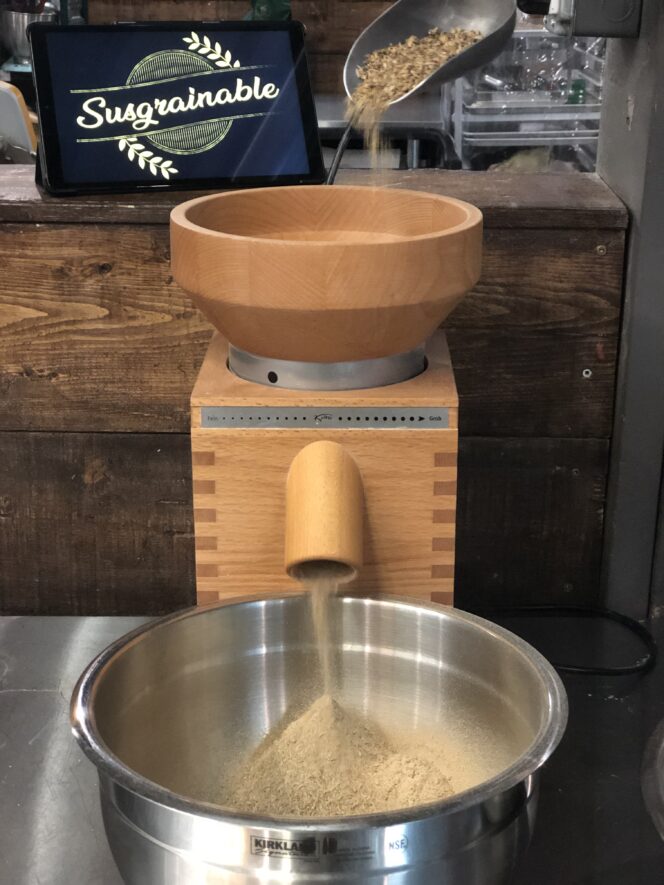
Milling; Photo sourced from Susgrainable
So far, consumers have been enthusiastic about the products. Part of the company’s mission is to educate people about the benefits and need for a circular economy. Susgrainable initially started selling at places like farmers’ markets. They found their cookies were an accessible way to get people on board with upcycled barley flour. “Parents really love the fact that it’s a higher fibre product, and if their kids will eat it, this is great. It’s healthier than what they’re currently serving them,” Wandler says. Susgrainable is now seeing more demand for recipes as people start experimenting with the flour themselves.
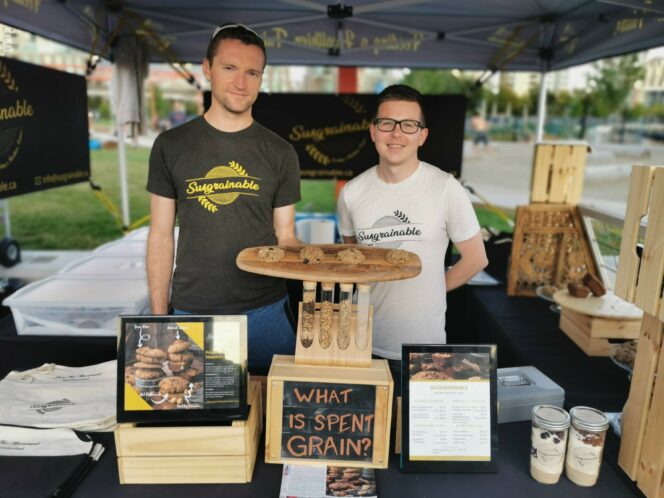
Co-owners Marc Wandler (left) and Clinton Bishop (right) of Susgrainable; Photo sourced from Susgrainable
While Susgrainable has faced many challenges as a small business, especially during the pandemic, one thing’s for sure: there is no shortage of breweries wanting to contribute their spent grain. “They all experience this problem. As we are taking the byproduct and creating the highest value product we possibly could with it, everyone likes the opportunity,” Wandler says.
One of their partners is Faculty Brewing Co., who sells the cookies and flour mixes in their tasting room. Owner/operator Mauricio Lozano is a fan of Susgrainable’s flour for his own baking at home: “It adds all the richness that white flour doesn’t have,” he says.
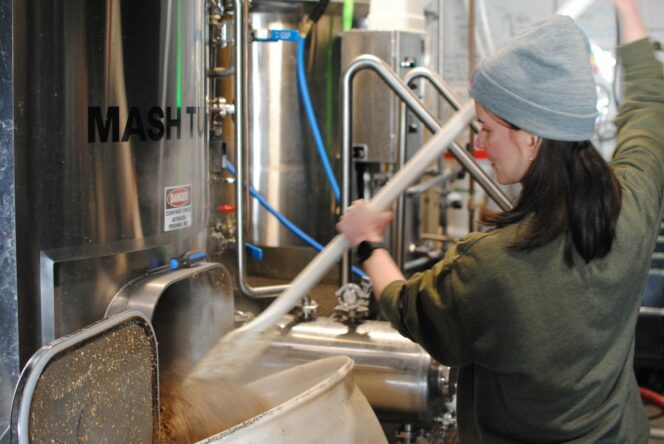
Sourced from Faculty Brewing Co.
Besides what it gives Susgrainable, Faculty Brewing Co. pays a fee to a local pig farmer to come pick up spent grain, so that it can be used as livestock feed. Partnering with Susgrainable was a win-win decision. “A company that can take the grain from us for free, for one, gets a free ingredient, but it also removes a cost for us in dealing with our waste,” Lozano says. He speculates that there could be additional uses for spent grain that are currently not being actively explored, for example, as biofuel.
In addition to diverting spent grain from the landfill, Faculty Brewing Co. has a variety of other initiatives to increase their sustainability. Their tasting room serves beer straight from tanks versus kegs. That means they don’t waste water washing kegs, and they can decrease the energy needed to keep the beer cold. They also treat and separate out solids and organics from the water that goes down the drain. Faculty Brewing Co. minimizes their carbon footprint by using renewable natural gas and a car co-op versus buying their own company cars.
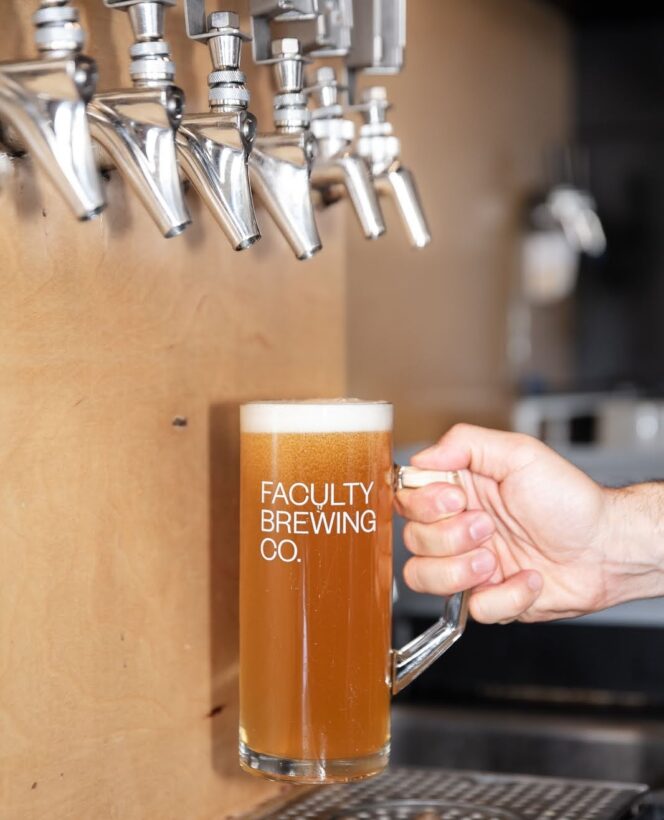
Breweries across the city are getting creative in how they repurpose their spent grain. Azlan Graves, head brewer at Main Street Brewing, explains that a local farmer comes once a week to pick up their spent grain and leftover organics, such as orange peels. The farmer uses the grain for feeding his cattle and pigs, gives what he can’t use to other neighbouring farms, and composts the organics on his property.
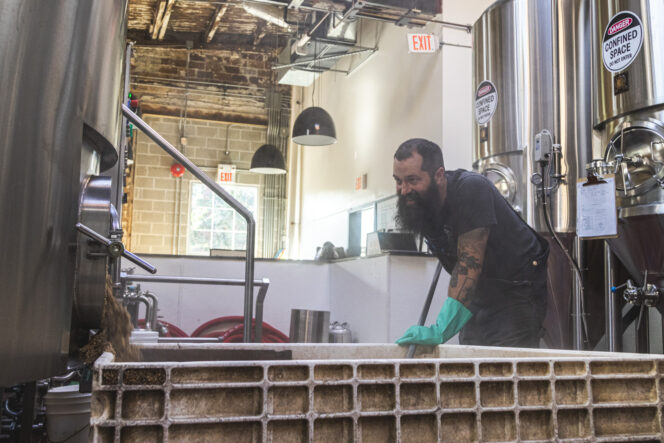
Azlan Graves; Sourced from Main Street Brewing
Main Street Brewing has repurposed their spent grain in other innovative ways. “It’s neat to find other ways to utilize it,” Graves says. Wagging Tail makes dog treats with Main Street Brewing’s spent grain, and Side Hustle Sandwiches has used it as a coating to keep in moisture when roasting meat. Graves himself has repurposed the byproduct to make sourdough bread, and has also seen others use it to make a crumble.
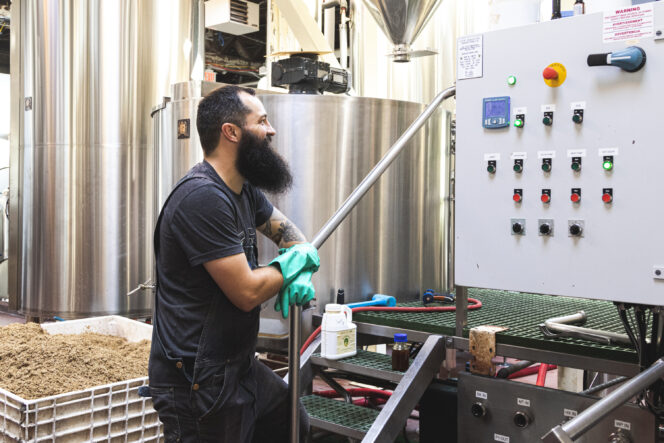
Azlan Graves; Sourced from Main Street Brewing
Main Street Brewing is coming up with beer recipes that incorporate previously used hops. “Dry hopping beer is a huge part of cost but it’s also a pretty inefficient process. A lot of times you’ll have hops that still have a lot of potential,” Graves. So far, their experimentation with reusing hops has been going well. In terms of other sustainability initiatives, Graves is excited about partnering with West Coast Plastics Recycling for recycling their soft plastics, such as bags for grain.
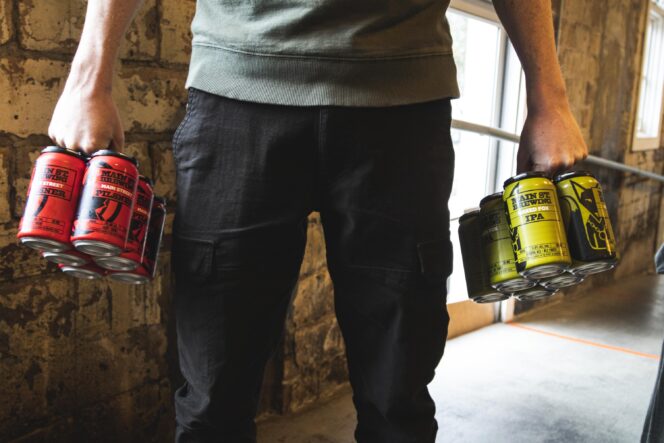
Sourced from Main Street Brewing
Iain Hill, brewmaster and principal at Strange Fellows Brewing, explains that a cattle farmer in the Fraser Valley comes twice a week to pick up their spent grain. “Animal feed is ideal. They get protein from it, so it’s fairly good quality for them. And cows specifically can digest cellulose, which is a lot of what husk is,” Hill says.

Sourced from Strange Fellows Brewing
Hill says that whereas in Europe, breweries and farmers have longstanding relationships, here in Canada, this isn’t always the case. Instead, it’s about encouraging local farmers to trust an ingredient that they may not know they can feed their animals. Hill says that many local breweries use a pick-up service to simplify the process of getting the spent grain from the brewery to farmers. Strange Fellows Brewing was fortunate to have a farmer take the initiative and approach them about using their spent grain as feed.
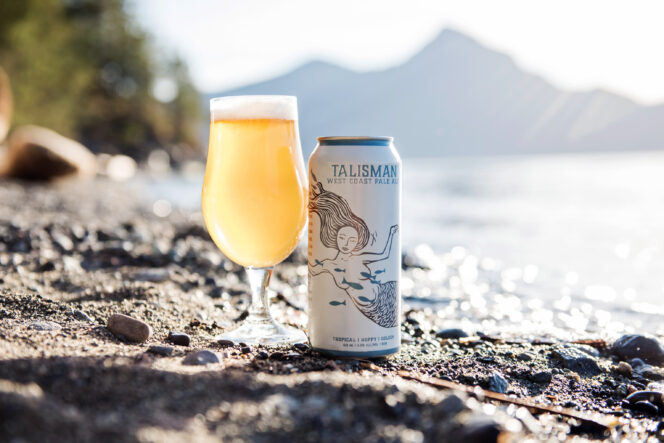
Sourced from Strange Fellows Brewing
Hill is proud of Strange Fellows’ other green endeavours. For example, the brewery is working to get rid of the hard plastic caps that connect their cans of beer. Even though it’s an expensive endeavour, they’re aiming to use paper boxes instead by the summer.
Breweries in Vancouver in partnership with farmers and companies like Susgrainable are committed to making beer production as eco-friendly as possible. While getting Susgrainable off the ground hasn’t been easy, Wandler is driven by his passion to reduce food waste. “When I realized how much food waste there is, it was such a shocking number. It’s such an under-utilization of resources,” he says. Wandler sees Susgrainable’s upcycled barley flour as one component in a larger movement towards a circular economy where conscious consumption becomes the norm.

Sourced from Strange Fellows Brewing
















